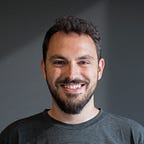Why hiring for an early stage startup is hard
Where? Who? And the Zuckerberg test
We’re now eight full-time team members at Factorial, plus a few collaborators. This means that each and every one of us became ~10% of the company’s DNA.
I see our startup as a quest. An expedition. We have a goal, a vision, initial resources and drive to get there. But we need a team.
When we started Factorial we looked at ourselves and we saw a team that could perform all the functions needed for the first few years of our company. Of course, we would be doing an average job at many of the functions, but at least we could fill those gaps until the company grew to justify bringing in specialists.
What did we need? Product, product and product. That’s a big part of what defines us, so we need to invest in product and the team behind it. Also: marketing, sales, customer success, finance and administration.
Where?
Where do we look for talent to grow our team? That’s half of the battle, in my opinion. Having a pool to fish from (pardon the metaphor) makes this process much more efficient. Beware, though, of these pools. By definition, limiting the scope of your search will make it easier for you to catch a fish, but it will also reduce the potential of finding outstanding candidates. Make sure to find (or build) a pool with only the best.
Partners
Factorial was co-founded by itnig, the venture builder behind great small companies such as Camaloon and Quipu. As part of itnig we could automatically count on great part-time collaborators: finance, recruiting, office management and PR, in our case.
Even if you’re not part of an ecosystem, there are other partners that can help build your team. We also leveraged one of our first business angels who is always on the look out for talented people and sends them our way.
Network
Given our background, we could really rely on a group of former colleagues plus fellow entrepreneurs that would recommend us some of their best collaborators or past employees. More than half of our team comes from this network.
The World
Here’s to the actual “Recruiting”. Where our partners or our own network can’t generate good enough candidates, we have to reach out to the world.
This is very exhaustive and time consuming if done right. I would highly recommend working with a recruiter, even if it’s just for the sourcing and you want to lead the rest of the process in-house.
For us, Marta from itnig leads all our “external” recruiting efforts except for product and development, where Pau likes to own the process from end to end. There’s a lot of fishing in Github, LinkedIn, Twitter and Google.
Who?
We look for battle scars, brilliant brains and great hearts.
Scars
The first thing we look at when hiring someone (unless it’s a very junior position or an internship, and we didn’t do any of those yet) is that they have relevant experience in previous positions. We look for people who were able to grow in their jobs, face interesting challenges and had an impact in the company they were at. This doesn’t mean that someone needs to have over 20 years of experience (I don’t have near 20 years of experience!), but rather an intense one. Some are able to accomplish in 2 years what others do in 10. The first one is more interesting, because it’s what we expect will happen in our company.
Brains
After looking at the past, let’s look at the future. What will it require for this person to be successful at Factorial? One challenge with a company like ours is that we don’t really know the answer to that, but we have to take a guess. Often times we’ll find that some of us was doing this job before, even if it was next to a thousand other things (such as, we were supporting our customers before having our first support person, or we were trying to market before hiring our growth person). I like to look at all the knowledge I wish I had when doing that job and then checking that our candidate has it.
On top of that, since there’s so much uncertainty we value a lot the general abilities of that person, personal hobbies, varied professional experience and intelectual capacity.
Heart
Experienced and smart candidates won’t make the cut unless we know they have the right kind of heart. It takes a good heart and a strong heart to join Factorial.
We’re a small team, and we’re often under a lot of pressure. We’re building a new company, inventing a business model and fighting against giants. We need to make sure everybody’s helping each other as challenges appear, and celebrate together when successes come.
But that’s not enough. We also try to scare people away by telling the bad parts of stories of working at startups:
- There are no processes (or not many).
- Most questions are answered by “I don’t know”. And that’s a good thing.
- There is no such thing as “this is not my job”.
- We’re all learning everyday.
If your heart is strong enough to feel comfortable working while riding a roller coaster, then you might be a fit.
The Zuckerberg test
The last thing I like to test while interviewing a candidate, if this candidate has to report directly to me, is:
Would I work for this person?
I heard this from Mark Zuckerberg a few years ago and tried to apply it retroactively to everyone I hired and reported directly to me. The result amazed me.
Each time I consider hiring somebody I ask this question, and if this person is supposed to be working closely with me, the answer has to be yes.
Stay tuned for the next post about finding product market fit!
